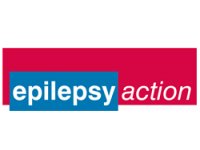This National Epilepsy Week (13th – 19th June), new research by the charity Epilepsy Action reveals the perceptions of young people with epilepsy to growing up with the condition. A lack of understanding and acceptance often leave young people feeling vulnerable, isolated, miserable and alone. The research also shows that almost a quarter of young people with epilepsy do not feel completely informed about the condition which can have a great effect on their lives from worrying about other people’s reaction to their condition, feeling excluded by peers and also often feeling that their teachers are uninformed about their condition and are not taking this into account when they have difficulties with their studies.
So how can we begin to dispel the myths surrounding epilepsy and better understand the condition?
Joining us to discuss this further is Aimee Gee, a representative from the Charity Epilepsy Action and Rosie, a young person with epilepsy.

